- Home |
- Search Results |
- What’s it like to work in publishing? (Part 1)
What’s it like to work in publishing? (Part 1)
Curious about publishing, but want to find out what it’s really like? Who better to share with you what it's like to work in the industry, and the different roles available, than some of the brilliant people working here.

We’re shining a spotlight on some of the very different roles and career opportunities available in publishing, speaking to some of our colleagues working in those areas to get to the heart of what their job involves and why they love it so much.
In Part One of our two-part blog, we catch up with some of our colleagues working in the areas of Marketing, Design, Technology and Production to understand more about their roles - from the most surprising aspect of their role, to their tips for others wanting to build a career.
For tips and insights into Publicity, Editorial, Sales and Distribution, read Part Two of our blog, linked just below.
Marketing
We also spoke to Tom, a Senior Marketing Executive in our International Marketing team, to find out more about working in Marketing at Penguin Random House.
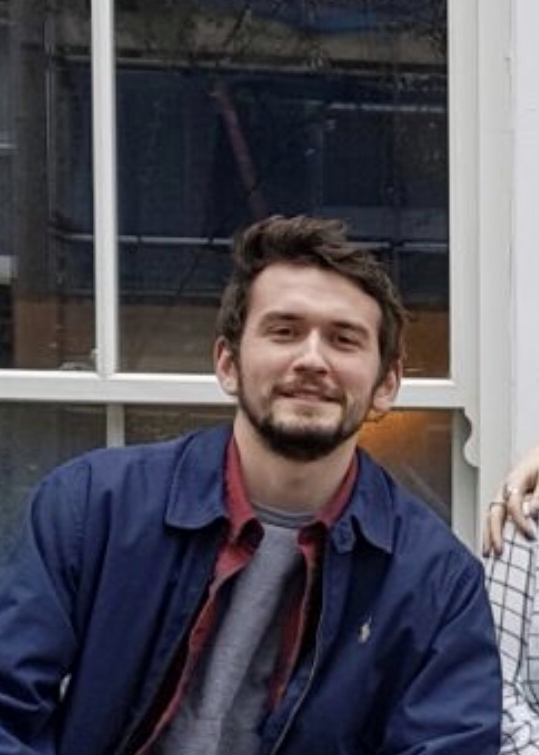
What is the one thing that would surprise people about your job?
The number of markets we work across here at Penguin Random House UK! As part of the International Marketing Team, we need to make sure we get our books in front of readers based all around the world. We’ve worked on some hugely exciting marketing campaigns – from Philip Pullman’s The Secret Commonwealth to Margaret Atwood’s The Testaments – in a wide range of countries spanning Spain, Singapore and Malaysia, to name a few.
What skills do you need to work in Marketing?
Marketing for international markets is incredibly varied and allows you the opportunity to not only think creatively but strategically, tailoring book campaigns for different markets. You need to be well-organised – often working on a number of books across a number of different channels at once – and enjoy thinking outside of the box, coming up with new and exciting ways to reach readers.
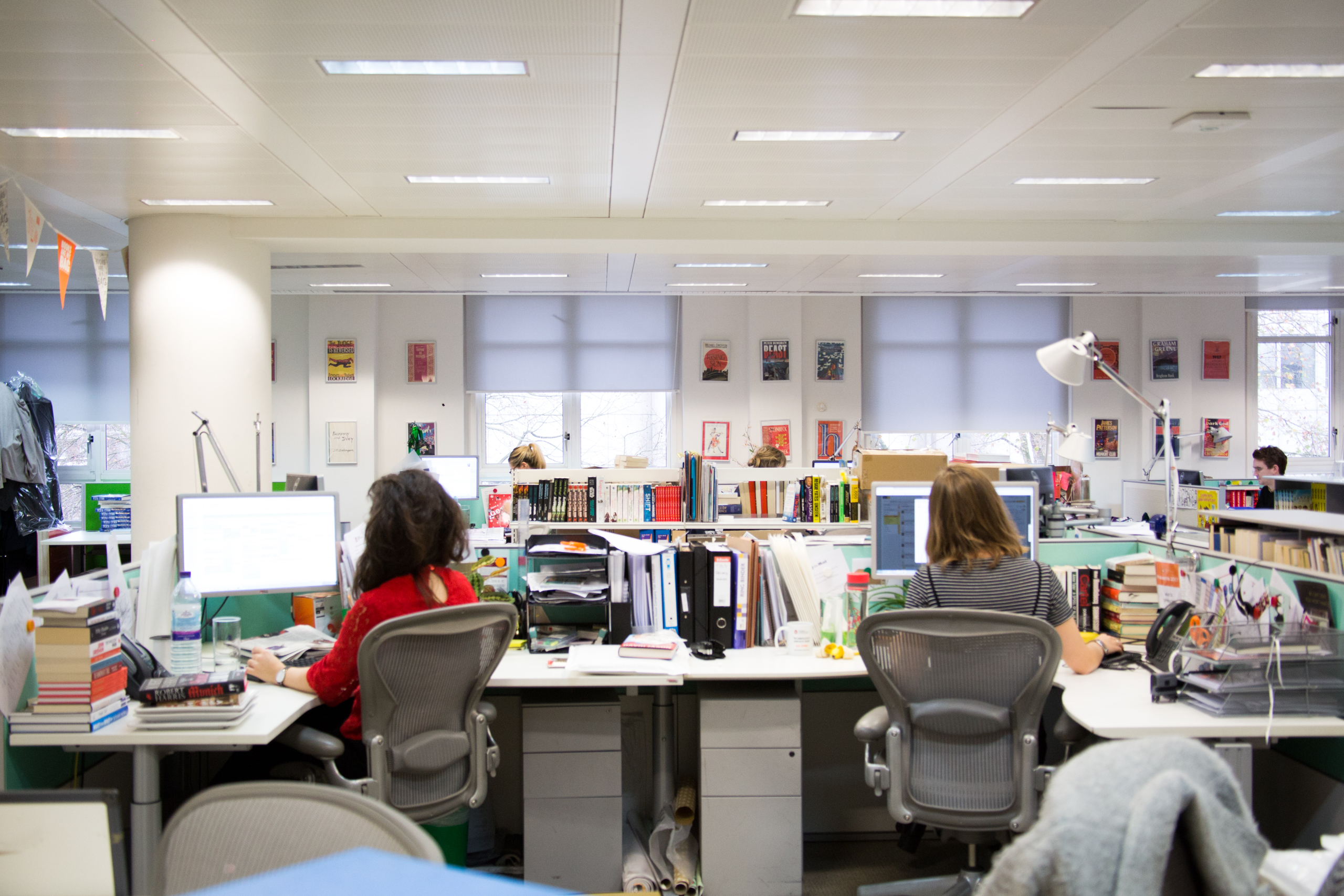
Top tips for applying for a job in Marketing from our Resourcing team
For our marketing roles, we’re looking for someone who’s interested in experimenting, trying and testing – as that’s what you’d be doing with our marketing campaigns to boost a book’s potential audience and connect the campaign with as many people as possible. We also look for people who follow what’s happening in the marketing world, so if you’ve worked for another company which has done some interesting advertising that could be relevant (or are just fascinated by what’s going on in the world of marketing), we want to know in your application.
If you’re keen to learn more about digital marketing tools, you can find lots of free online courses like Google Analytics Academy that help to build the skillset in your CV.
Design
Amy is a Junior Designer at Cornerstone
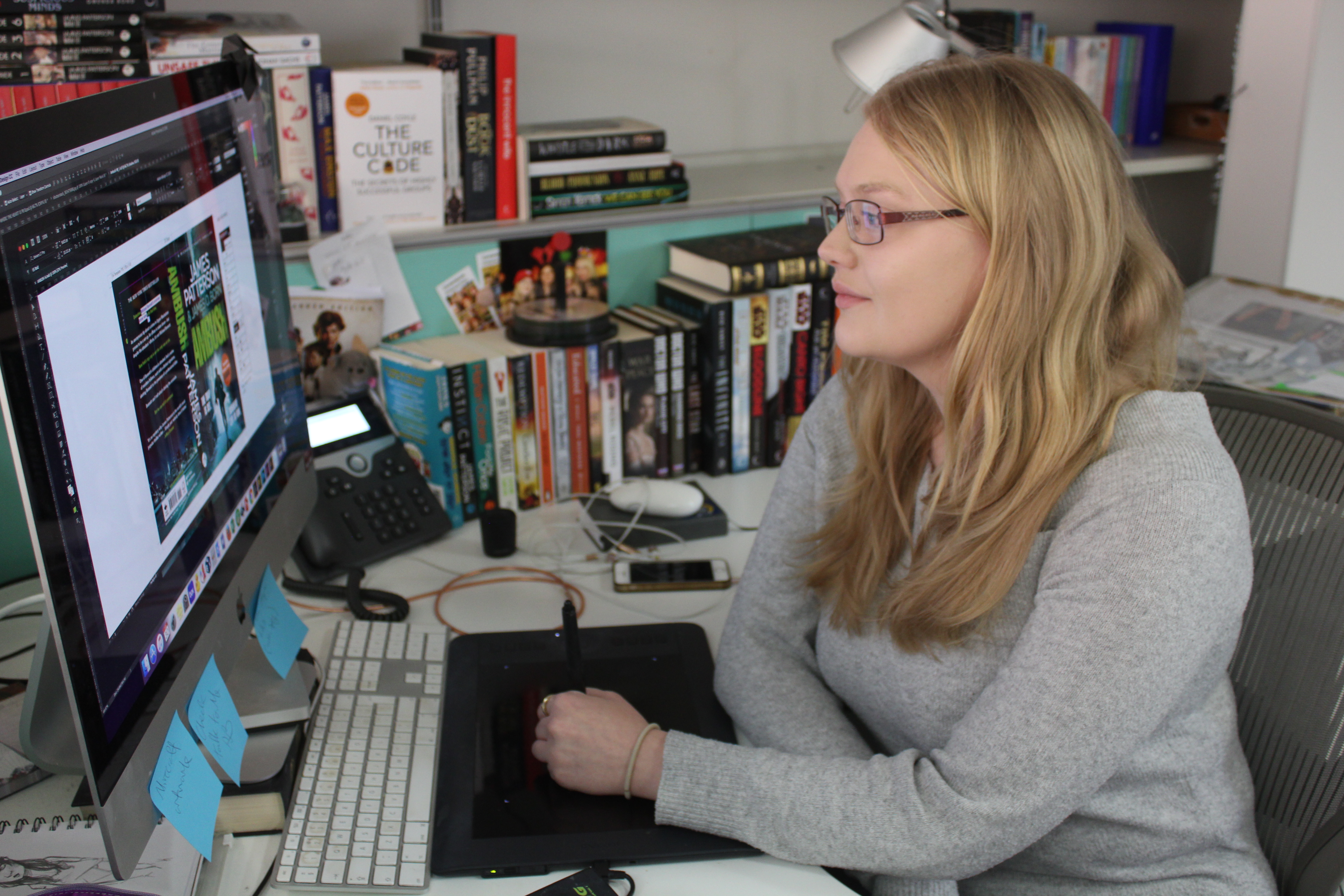
What is the one thing that would surprise people about your job?
I think the thing most people would be surprised to learn about being a book designer is that you don’t have to be an artist, or even able to draw, to be able to work in the role – on a day to day basis we don’t really need to.
With a lot of our more artistic approaches, we will commission illustrators who work in the specific style we have in mind to create the artwork for us. When the artwork is complete, we will partner it with all the text we need to create the final cover. That’s not to say that artists or illustrators don’t work as book designers – I did illustration at university and then moved over to book design later. If the brief calls for it, we can draw little pieces ourselves if we’re able to, and some designers are also great with typography and can create the lettering for the titles themselves. But for the most part, if a cover we’re designing requires a specific illustration or something to be done in a specific style, we will turn to an artist to create our vision for the cover for us.
What skills do you need to work in Design?
In design, we work with Adobe Photoshop and InDesign on a daily basis so we really need to know our way around the Adobe Creative Suite. You don’t need to be an expert when you first start out though, and you quickly see that every designer works in these programmes in a completely different way. I’m constantly learning little hints and tips from other designers because there’s no ‘one right way’ to design and create covers.
Top tips for applying for a job in Design from our Resourcing team
Use your CV to tell us about any projects or skills that are relevant to the role, and focus your style and creativity into your portfolio where we’ll be looking for a demonstration of a broad design skillset. In your work examples, you can use personal projects, academic projects; or perhaps you’ve created posters for a local event.
In your portfolio, we’d like to see you integrate a variety of different skills into one design. This could be photography, illustration, graphic design and typography. Some experience with photo editing software is also essential. If you’d like to brush up on your skills, Adobe have lots of free tutorials for beginners and experienced users on Photoshop and InDesign which are tools Amy mentions above.
What’s really important to work in this role is that you have a flair for design, and have an ‘eye’ for what works visually and what doesn’t. Basic skills for creating covers (like Photoshop) can be taught, but having the ability to know what looks good and what doesn’t is what’s really important in this role. You also really need to have patience and a lot of determination – some covers can be trickier than others to get right and can go into our cover meetings week after week with a different selection of visuals each time. But it’s all worth it in the end when that one cover is finally approved.
Technology
Callum is a Junior Security Analyst in our Technology team
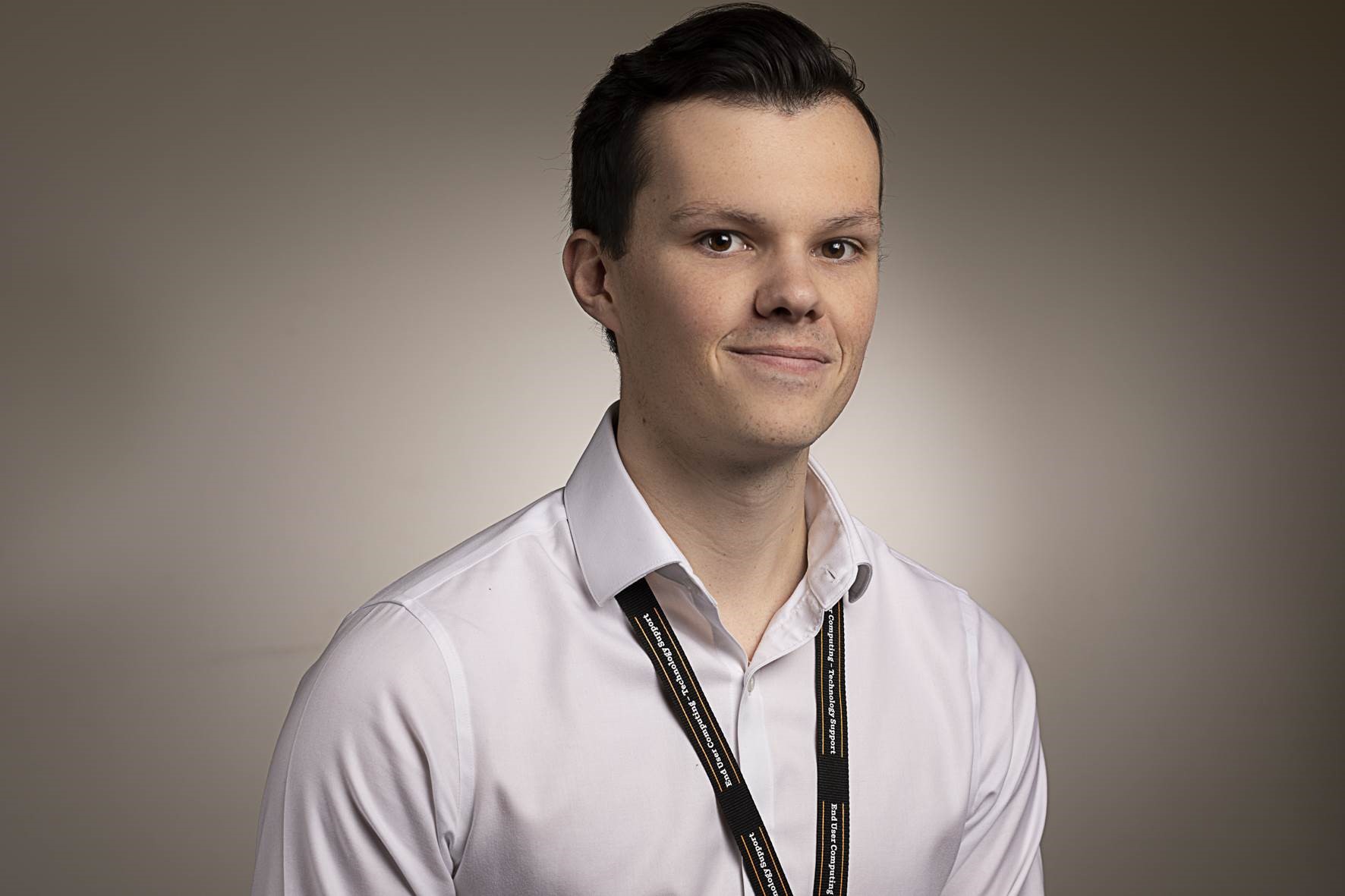
What is the one thing that would surprise people about your job?
I think the most surprising thing about being a Security Analyst is how community and people-focused it is. On face value, ‘Security Analyst’ sounds very techy and you may imagine someone who hides away in a corner and stays very isolated, but in reality, it is the complete opposite!
Of course, you still need to know your stuff and have an interest in technology, however, the reality is that a lot of the work we do involves other teams and we rely on other people’s support to ensure that we are doing our job properly. The Security community as a whole is very social too and this means that there is always a conference or summit going on somewhere, the majority of which are all really useful.
What skills do you need to work in Technology?
There are a number of things that I think make up a good Security/Cyber Security analyst. I think you need to have a vested interest in technology, not just isolated to a single company – the same issues that affect us are happening all over the world, so keeping an eye out on technology across the globe is very important.
Next, a good foundation always helps – I worked within Penguin’s 2nd line support team for around 18 months before making my move so I understand how the Technology and infrastructure within our business works as I have worked on it for a long period of time. I think understanding the way your company works is really important too! There are thousands of tools and policies that we could implement, but if they’re not right for Penguin then there really isn’t any point in using them.
Finally, I think attitude is key to being successful in any role, but specifically Security. The reason that I’m in this position is mostly because of my attitude. Every day is full of surprises so staying positive and always trying to improve yourself and the business is how you’re going to be successful!
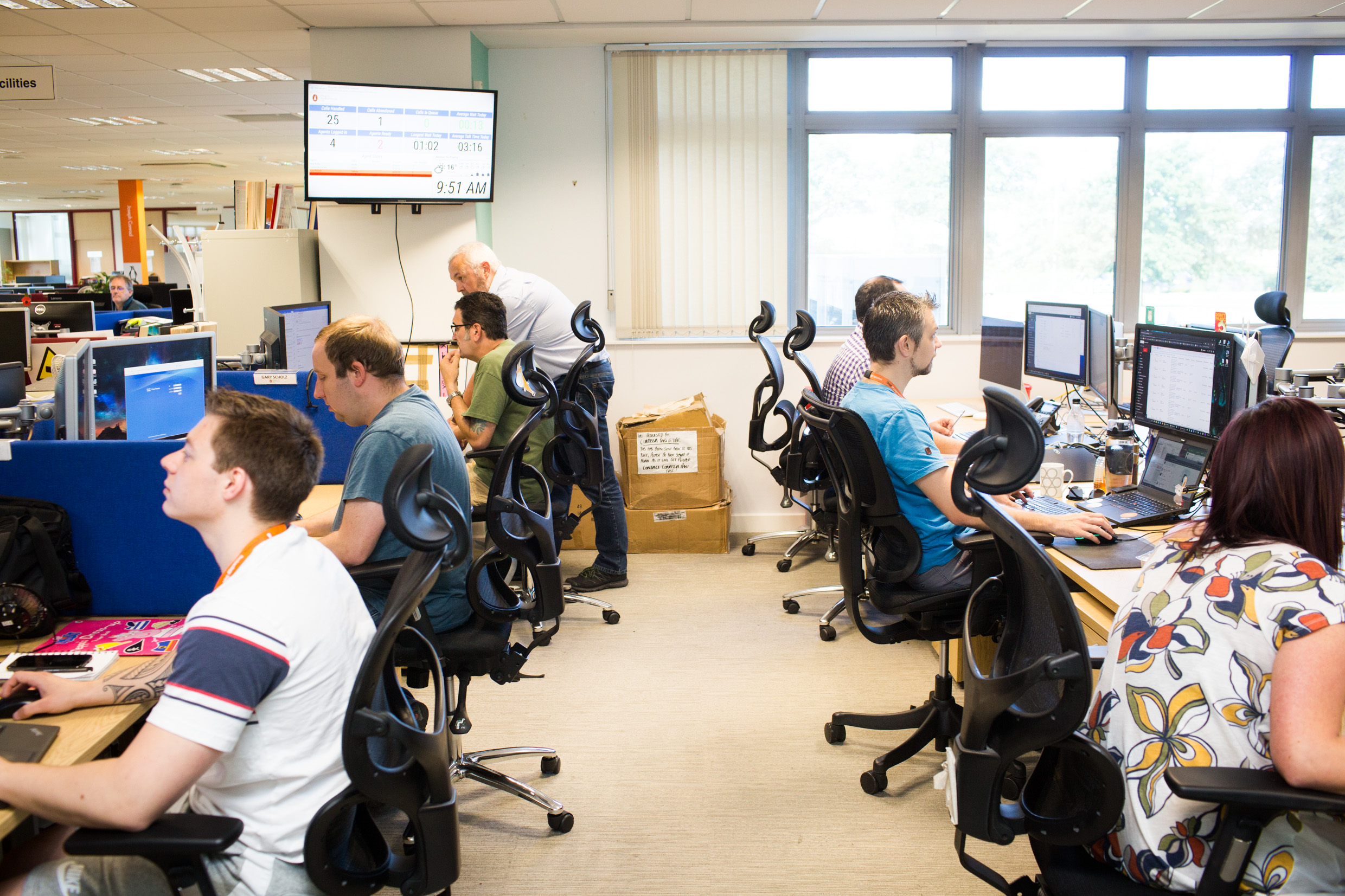
Top tips for applying for a job in Technology from our Resourcing team:
For our Technology roles, if you have good communication skills, customer service, and telephone skills – include them in your application. Technology affects everyone at Penguin Random House, every day – so you’d be dealing with lots of people across the company. Prioritisation is also a great skill to highlight, so if you’ve managed to juggle multiple projects, we’d like to hear about it.
Of course, technology skills are essential, and we’ll be looking for a demonstration that you’re good at picking up new systems quickly in your application. Perhaps you’ve had to learn a new piece of software to finish a project on a deadline.
Before drafting your cover letter, read the job advert thoroughly. If there’s any techy jargon you don’t fully understand, be sure to research what it means and show how your skill set could be transferrable.
Production
Sian is a Production Controller in our Production team

What is the one thing that would surprise people about your job?
One thing that would surprise people about my job is that I get to put books together, making them look as beautiful or appealing as possible, before sending them to the printers. I think lots of people don’t know my job exists or think we do all the boring admin behind a book but it’s really technical and changeable, and there’s always a book that’s pushing the boundaries on our knowledge and comfort zones in order to stand out!
What skills do you need to work in Production?
The skills you’d need to work in production were described to me on my work experience placement: a love of stationery, super organisation and a keen eye for detail. Now that I’ve been here for a few years I totally agree.
We project manage the book from manuscript to finished copy and have to look after lots of files and budgets for multiple titles on the go. I colour correct images a lot of the time too, so that they print on paper how they look on screen, so it’s good to be able to think creatively about how to adjust a file to do that.
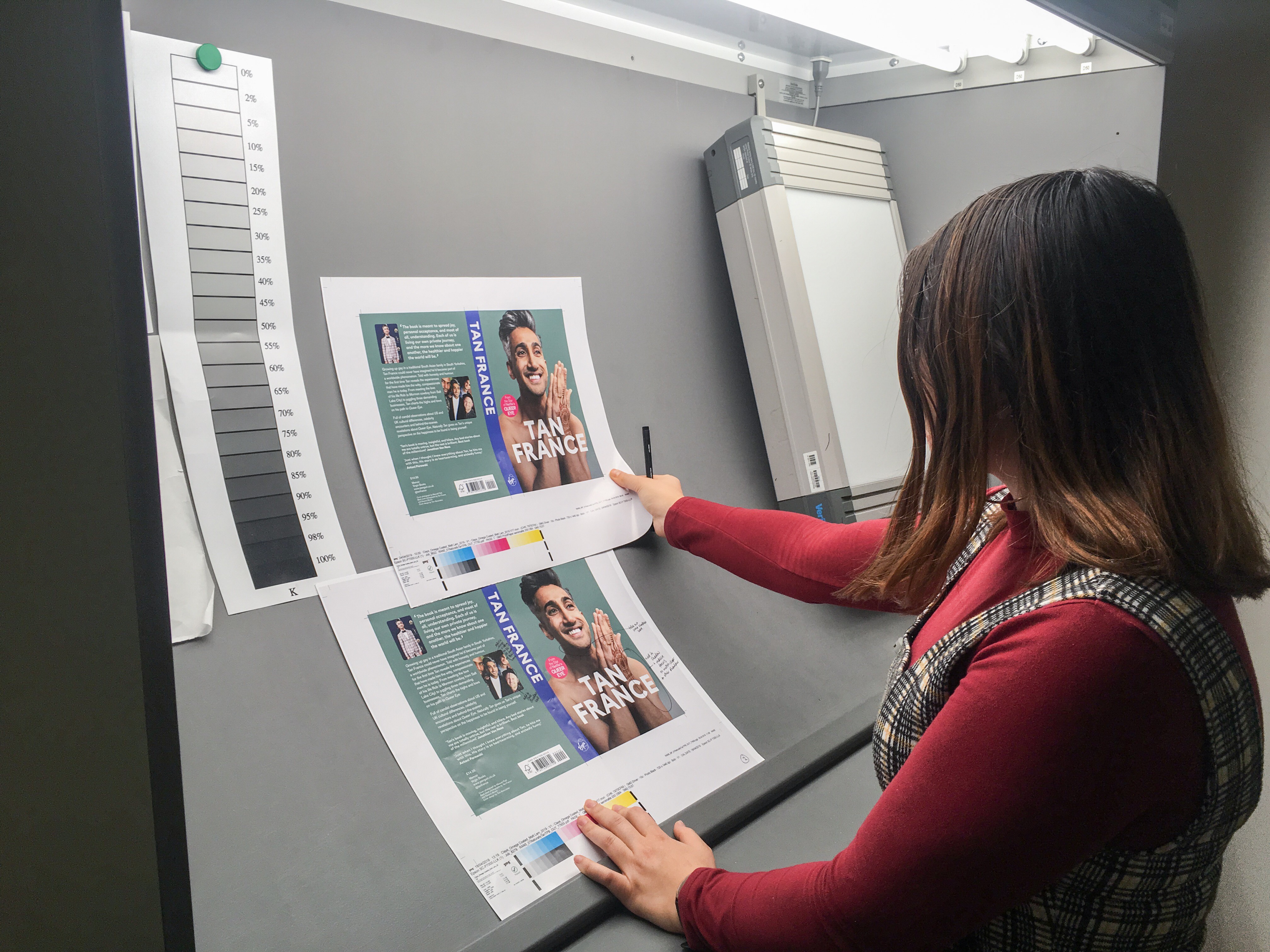
Top tips for applying for a job in Production from our Resourcing team:
Some understanding of what goes into making a book really helps your application stand out if. If you want to get into production, and you’ve designed a zine, booklet, or poster and know about all the logistics that go into a printed product, we’d like to hear about it.
Can you spot when a design isn’t perfectly centred, or which colours are the best for print vs digital? Good visual attention to detail is also something we’d be looking out for in CVs and cover letters. For example, if you’ve worked on a newsletter or project where you’ve had to think about the practicalities of formatting and printing a finished product.
If you have negotiation and project management skills, they’re good skills to highlight in your application. In Production, you’d be working within deadlines and budgets and working with teams from editors to printers, sales colleagues to warehouses. If you’ve worked on a project where you’ve had to juggle multiple priorities and requests – calling in favours or getting the best deal, be sure to let us know in your application.